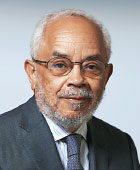It was a rainy October evening, with no promise of a respite. So, I accepted the comfort of an invitation indoors to watch a play. The theater was a local Parisian space comfortably seating about 200 individuals. The play, “Glenn: Naissance d’un Prodige” (“Glenn: Birth of a Prodigy”), was written by Ivan Calbérac. It is the story of the famous Glenn Gould, considered one of the greatest pianists of the 20th century. He is celebrated mainly as an interpreter of Johann Sebastian Bach’s piano compositions. Other observers have described his talents as a writer, composer, and conductor; however, the play, obviously pursuing condensation of his life story, focused on the development of his skills on the pianoforte.
He was born in Canada on September 25, 1932, and died on October 4, 1982. Reports describe his childhood exposure to music and the involvement of his mother in his piano lessons. His possession of perfect pitch, a phenomenal musical memory, and an exquisitely attentive mother all played a part in his success. He enrolled in the Royal Conservatory of Music in Toronto at age 10 and apparently passed his final Conservatory examination on that instrument at age 12.
We learned early in the play that Gould’s mother followed through on her lessons. She sometimes restricted him to a closet for having misidentified a note. He had difficulty falling asleep, which caused her to schedule nights for her to sleep in his bed and calm him. There was a dramatic scene in which she and his father argued about the excessive time she slept at her son’s side. Father advised her that it was not a good practice. She dismissed this silly talk and highlighted her commitment to promoting her son’s artistry.
This maternal devotion is portrayed in different ways by Calbérac. Mother protects her son from the natural intrusions of mundane life, such as the inevitable encounters with female friends. When the telephone rings, she answers and finds creative excuses for Glenn’s unavailability. She does not hide her actions as much as she argues to herself that such relationships take time away from the central task of preparing a performing artist.
As Calbérac frames the events, this mother-son interaction becomes legitimately two-sided. It comes into full view toward the end of the play when his mother, at age 83, is hospitalized and near death. He wants to see her and cannot bring himself to do it. After all, going to the hospital may bring him in contact with germs and cause him to have, yes, a nosocomial infection. That has been a major fear much of his life, one that led to his wearing gloves and not shaking hands with people. Unsurprisingly, then, when she dies, he chastises himself as an ungrateful son for denying her the pleasure of seeing him at the end. He did not make the trip to see this woman who had given so much of herself to making him comfortable and a successful artist.
In the informal debriefing after the performance, some friends wondered that this mother had gotten what she certainly expected from an alexithymic son. She must have understood that her son had complicated ways of expressing his emotions toward people. That assumes he possessed feelings about individuals. Little proof crops up in the play supporting this. In fact, it is hard to define what he feels about the other woman, aside from his mother, who followed him dutifully for years, waiting for a sign of love or even of acknowledgment that she was loyal to him.
Having 50 years to cover in this prodigy’s life story, the playwright takes on the major task of highlighting a few features of Gould’s experiences. No psychological terms are used—just the provision of evidence in snippets. Gould has an exceptional memory for the language of music. While he lacks easy connections to people, he has a deep emotional relation with music. For example, when I listen to his piano playing, I remark easily how his execution of a few bars of music is so profoundly dynamic. Notes that are of equal duration and volume become performatively distinct, varied, like the way we speak. Monotony disappears. It becomes clear that he is playing something he hears, not what is written on the sheet. This insistence on the enveloped self within the music emerges in the idea that he wished to control the product of each performance. On stage, there was the discussion about his wanting to direct every aspect of the music. This effectively resulted in his withdrawal from public concerts. He preferred delivering non-audience recitals in his recordings; he described the audience as torture. Public performance had become torture.
This produced a form of isolation in everyday life that starts with his body—in the closet and later wrapped in winter clothing and gloves, even in summer. There is, too, the withdrawal from community and family. There is a scene in which his agent resigns, and Gould asks him to stay. The representative points out that there is nothing for him to do. Everything is set up to run like clockwork. But Gould wants him to hang around, just not too close. Anthropologists talk of socialities, of our need for each other, of the pressing interrelatedness of human beings. This prodigy lived it differently. ■

